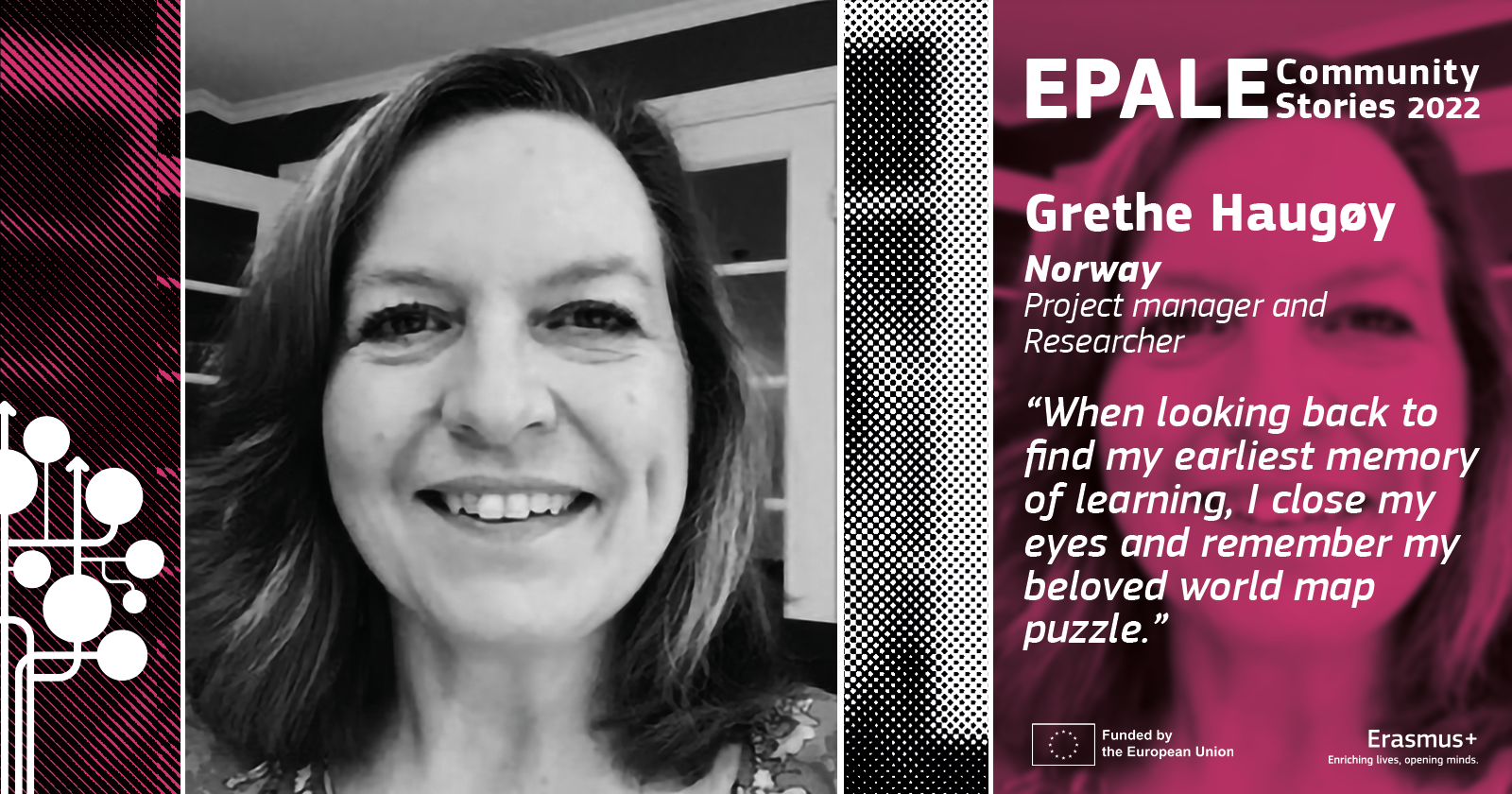Grethe Haugøy: Education and training for social and economic participation for all

Short bio
I’ve been engaged with lifelong learning in various capacities for 30 years. I started out as a teacher at an adult education centre in Oslo, Norway, before branching out to international projects, management, research and bureaucracy. At 56, I am still eager to learn more about this interesting field.
My Story
When looking back to find my earliest memory of learning, I close my eyes and remember my beloved world map puzzle. I did the puzzle while lying on the wooden floor of my family home, assembling the pieces and creating a colourful image. I couldn't read yet, but I recognised the letters making up my favourite word, Africa. I was intrigued by the dark green colour of the Congo basin and the deep burgundy and bluish whites of the mountains– the Himalayas, the Alps and the Andes. Even my own country Norway, a tiny narrow larva at the upper end of the map, had those colours.
The puzzle gave me a first introduction to the world around me, and since then I have always had a soft spot for maps and geography.
Mosaics of history
At an early age I fell in love with the encyclopaedia, especially the entries that included a plastic sheet showing the differences between then and now – e.g. the entries on Greek and Roman ruins that were just sunny pictures of yellow stones, but with the plastic sheets came colourful mosaics and fabrics as well as tiny Greek and Roman people in togas.
I also remember the TIME-LIFE book series on various countries. I especially liked the Italian one, with its pictures of famous art. My favourite was Botticelli´s Venus, with her long hair and wonderful shell, while I was bothered by the expression on the face of the girl in Orkin´s photo An American Girl in Italy.
I come from a traditional working class family and neither of my parents had any education, but my mother loved to read and had a decent book collection. I think I picked up my love for reading and learning from her.
Like many families in the 1960s and early 70s we subscribed to Reader´s Digest and had a good number of their books including condensed versions of novels and biographies. I ploughed through all of the books in our house, many of which I read several times. We also visited the local library regularly, and when I got my first bike and was allowed to cycle everywhere (at the age of 10) I biked there several times a month to borrow books.
Reading helped me to beat the odds against working class girls. I became an avid reader, and if I didn't have a book on hand I would read everything else from the text on milk cartons to my cousin’s football magazines (even if I didn´t play football), cartoons, my older sister´s science books, my mother’s cookbooks and even my father’s technical manuals!
Today I know that growing up in a home with books and especially where mothers are active readers is fertile ground for becoming a good student (which I was and have always been). Usually, the odds are stacked against girls from a working class background who want an education (my mother never obtained one), but thanks to my family’s liberal views on reading and learning I was allowed to do exactly what pleased me the most, to read and to study.
Of course, my family could never have paid for any of my schooling, so I am deeply grateful for growing up in Norway where public education is of a high quality and higher education is free.
Education and training for social and economic participation for all
These opportunities have had a great impact on my life and set the compass needle for my later activities and career. My lifelong learning work in various capacities (teacher, principal, project manager, expert, bureaucrat) has always focused on how to ensure access to quality education and training that secures social and economic participation for all.






